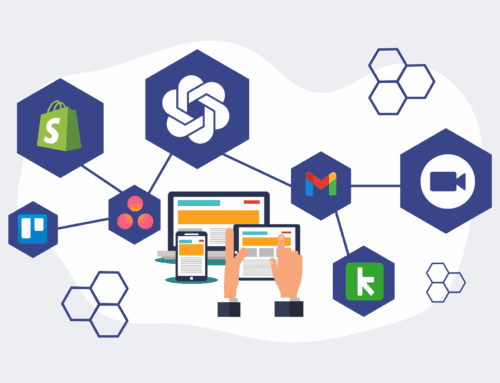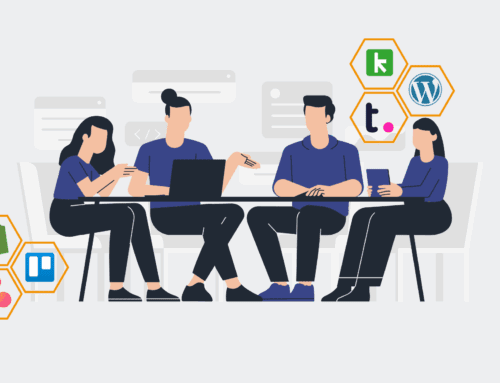The Legal Labyrinth: Ensuring Compliance in Your AI-Powered Recruitment Strategy
The integration of Artificial Intelligence into human resources and recruitment processes has moved from speculative future to present-day reality. AI-driven tools promise unprecedented efficiencies, from automating resume screening and candidate outreach to predicting hiring success. Yet, this technological leap introduces a complex legal and ethical landscape that business leaders cannot afford to overlook. As AI permeates the hiring funnel, understanding and actively navigating the myriad of compliance regulations is not merely a legal formality—it’s a strategic imperative to avoid costly penalties, reputational damage, and ensure equitable talent acquisition.
The Evolving Regulatory Framework: A Patchwork of Laws
Unlike well-established domains, the legal framework governing AI in employment is still nascent and rapidly evolving. There isn’t a single, universally adopted law. Instead, companies must contend with a patchwork of existing data privacy laws, anti-discrimination statutes, and emerging AI-specific regulations. Internationally, the European Union’s General Data Protection Regulation (GDPR) sets a high bar for data privacy and consent, impacting how candidate data is collected, processed, and stored by AI systems. Similarly, the California Consumer Privacy Act (CCPA) and its successor, the CPRA, impose stringent requirements on personal data handling in the US, demanding transparency and individual control over data used in employment decisions.
However, the most direct challenges come from regulations specifically targeting AI in employment. New York City’s Local Law 144, for instance, requires independent bias audits for automated employment decision tools (AEDTs) used by employers in the city, along with specific notice requirements for candidates. This law is a bellwether, indicating a clear trend towards greater scrutiny of AI’s fairness and transparency in hiring. Other jurisdictions are likely to follow suit, creating an intricate web of compliance obligations that vary by location and industry.
Addressing Bias and Discrimination: A Critical Ethical and Legal Hurdle
One of the most significant legal risks associated with AI in hiring is the potential for perpetuating or even amplifying bias and discrimination. AI algorithms learn from historical data, and if that data reflects past human biases—conscious or unconscious—the AI will learn to make similar biased decisions. This can lead to discrimination based on protected characteristics such as race, gender, age, disability, and more, violating established anti-discrimination laws like Title VII of the Civil Rights Act in the United States or similar statutes globally.
For business leaders, the challenge isn’t just about avoiding overt discrimination but about ensuring algorithmic fairness. This requires meticulous data governance, rigorous testing, and continuous monitoring of AI systems. Ignoring this can result in severe legal repercussions, including lawsuits, hefty fines, and irreparable harm to an organization’s brand and employer value proposition. It’s no longer enough to claim ignorance; companies are increasingly expected to demonstrate due diligence in validating their AI tools for fairness.
Transparency, Explainability, and Candidate Rights
Beyond bias, the “black box” nature of many AI systems presents another legal and ethical dilemma. Can an employer explain why an AI system rejected a candidate? Regulations are pushing for greater transparency and explainability in AI-driven decisions. Candidates are increasingly demanding to understand how AI tools evaluate them, and legal frameworks are beginning to grant them rights to explanation and appeal.
This necessitates that organizations implement AI systems that are not only effective but also auditable and explainable. The ability to articulate the factors an AI used to arrive at a particular outcome is crucial for compliance and for maintaining trust with potential employees. This isn’t just about good PR; it’s about adhering to emerging “right to explanation” principles that are becoming foundational in AI ethics and law.
Proactive Compliance Strategies for AI-Driven Hiring
Navigating this complex legal terrain requires a proactive, strategic approach. Companies must integrate legal and ethical considerations from the very inception of their AI implementation strategy, not as an afterthought. This includes:
- Conducting comprehensive legal reviews: Engage legal counsel to assess all AI tools against current and anticipated regulations in all relevant jurisdictions.
- Implementing independent bias audits: As mandated by laws like NYC Local Law 144, conduct regular, independent assessments of AI systems for discriminatory outcomes.
- Ensuring data privacy and security: Adhere to data protection principles, securing candidate data and obtaining necessary consents for its use in AI processes.
- Prioritizing transparency: Inform candidates clearly when and how AI is being used in the hiring process, and be prepared to provide explanations for AI-driven decisions.
- Establishing robust governance: Develop internal policies, training programs, and a dedicated oversight committee to manage AI ethics and compliance.
- Partnering with experts: Work with specialized consultants who understand both AI technology and the legal landscape to design and implement compliant systems.
At 4Spot Consulting, we understand that leveraging AI for efficiency doesn’t have to come at the cost of compliance. Our OpsMap™ framework allows us to strategically audit your existing processes and identify automation opportunities that are not only powerful but also adhere to the highest standards of ethical governance and legal compliance. We help businesses build robust, AI-powered systems that enhance recruitment outcomes while mitigating legal risks, turning complexity into a competitive advantage.
The future of hiring is undoubtedly AI-driven. However, its success hinges on an unwavering commitment to legal compliance and ethical deployment. Businesses that embrace this challenge proactively will not only gain a significant edge in talent acquisition but will also build a foundation of trust and fairness that resonates with candidates and regulators alike.
If you would like to read more, we recommend this article: The Future of AI in Business: A Comprehensive Guide to Strategic Implementation and Ethical Governance








